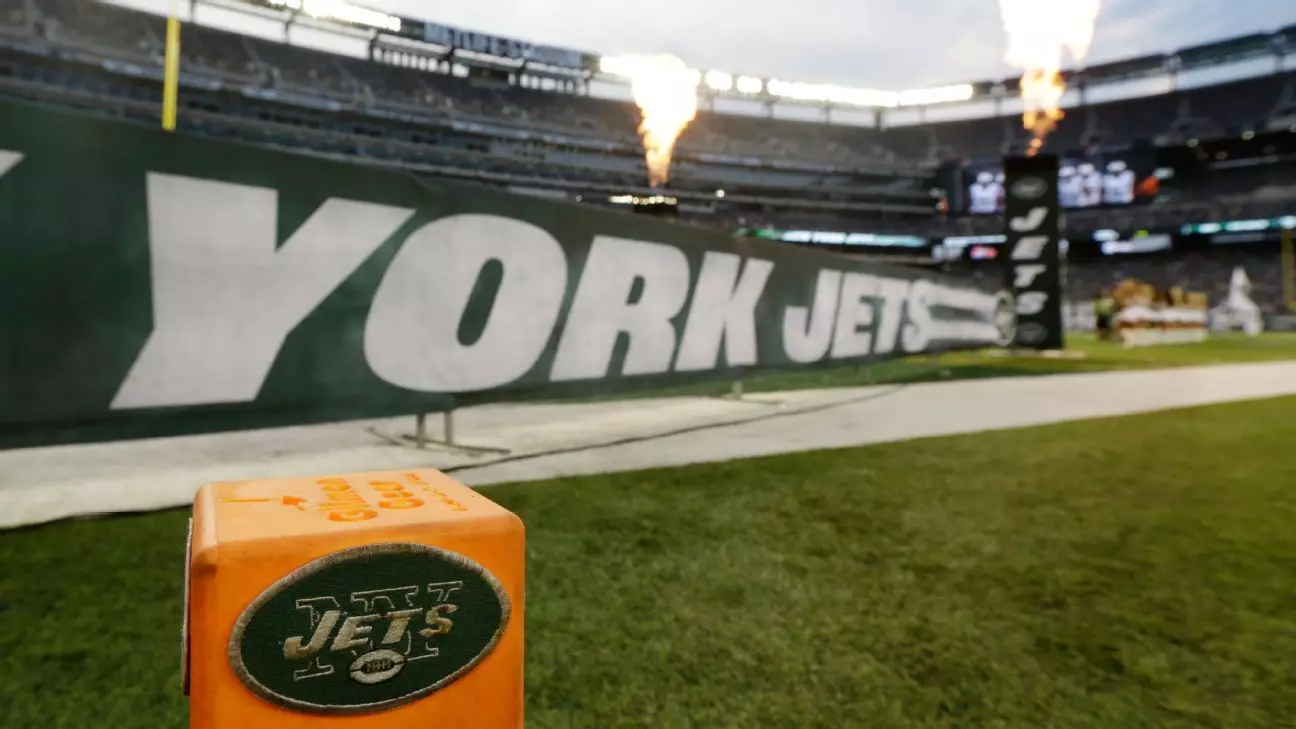In a surprising move that could significantly impact the New York Jets’ future, Tanner Engstrand has been appointed as the team’s new offensive coordinator, with reports confirming the agreement shortly before the conclusion of the 2024 season. The Jets, known for their recent instability on the offensive side of the ball, have made yet another decision that could either be a turning point or a misstep in their ongoing quest for success.
Tanner Engstrand’s association with new head coach Aaron Glenn is a positive sign for the Jets. Having collaborated for the past four seasons in Detroit, they share a mutual understanding of offensive dynamics. This partnership is crucial, especially given the Jets’ tumultuous recent history—a cycle of hiring and firing that has seen numerous offensive coordinators come and go in a short span. Engstrand’s hiring marks the Jets’ 11th offensive strategist in just 15 years, underscoring the organization’s struggle to find a suitable fit.
In 2024, Engstrand was part of a Lions team that boasted an exceptional scoring offense. His capability as the passing game coordinator allowed the Lions to score a remarkable 564 points, the highest in the league. The Jets will be hoping that this kind of offensive prowess can translate to their own game plan, especially with the pressure surrounding the success of their future Hall of Fame quarterback, Aaron Rodgers.
As the Jets welcome Engstrand, the future of Aaron Rodgers looms large over the franchise. Rodgers, at 41, remains undecided about extending his illustrious career into a 21st season. This uncertainty echoes throughout the organization, leaving fans and analysts wondering about the team’s trajectory. Engstrand’s appointment comes as both a blessing and a challenge. If Rodgers returns, it could herald a new era of offensive strategies tailored to maximize his formidable skill set. However, if he decides to retire, the Jets may find themselves needing to fill the quarterback role with another player, altering Engstrand’s play-calling frameworks altogether.
With Glenn stating that every player, including Rodgers, would undergo evaluation, the Jet’s approach appears pragmatic. It ensures that Engstrand must adapt his strategies to the existing roster’s strengths and weaknesses, regardless of who ultimately leads the offense.
While Engstrand’s past positions under Jim Harbaugh—first at the University of San Diego and later in Michigan—speak to his pedigree as a coach, critique lies in his lack of play-calling experience in the NFL. Although he has made contributions at higher education levels and even in the XFL, transitioning to the daunting atmosphere of professional football could present complications. The Jets must contend with the chance that Engstrand’s innovative concepts may take time to develop into an effective NFL offensive strategy.
The retention of key personnel will support Engstrand’s endeavors. The Jets boast a strong receiving corps, featuring stars like Garrett Wilson and possibly Davante Adams, alongside the versatile Breece Hall at running back. However, the prospect of Adams’ potential release due to salary cap constraints looms ominously, adding another layer of uncertainty to the situation.
Furthermore, the offensive line maintains four returning starters, which could bolster Engstrand’s confidence in establishing a coherent running and passing game. However, the overarching challenge remains centered on the uncertainty of the quarterback position—a gap that can dismantle even the most meticulously planned game strategy.
Tanner Engstrand’s appointment as the Jets’ offensive coordinator could mark a critical turning point for a beleaguered franchise. However, whether this decision will lead to tangible results hinges on various factors, notably the future of Aaron Rodgers and the surrounding team dynamics. As the Jets embark on this new journey, they must focus on building continuity, aligning strategies, and fostering an environment conducive to growth and success. If successful, this new chapter could finally provide the stability and offensive efficiency that has long eluded the team.


Leave a Reply